What you need to know
Performance tests/assessments are priced at 250.- each and all include individualized programming recommendations based on the test results.
For Upside Strength clients (both in-person & remote clients), performance tests are priced at 200.- each. Individual programming will then take test results into account moving forward.
If you are interested in performing multiple tests, at once or over time, discounts are available (contact for details).
If you have a group of athletes or a team interested in testing at the same time, group discounts are available (contact for details).
It is recommended that you follow up the initial test with follow up assessments at regular intervals (every 2-3 months) to determine progress and continuously adjust your programming.
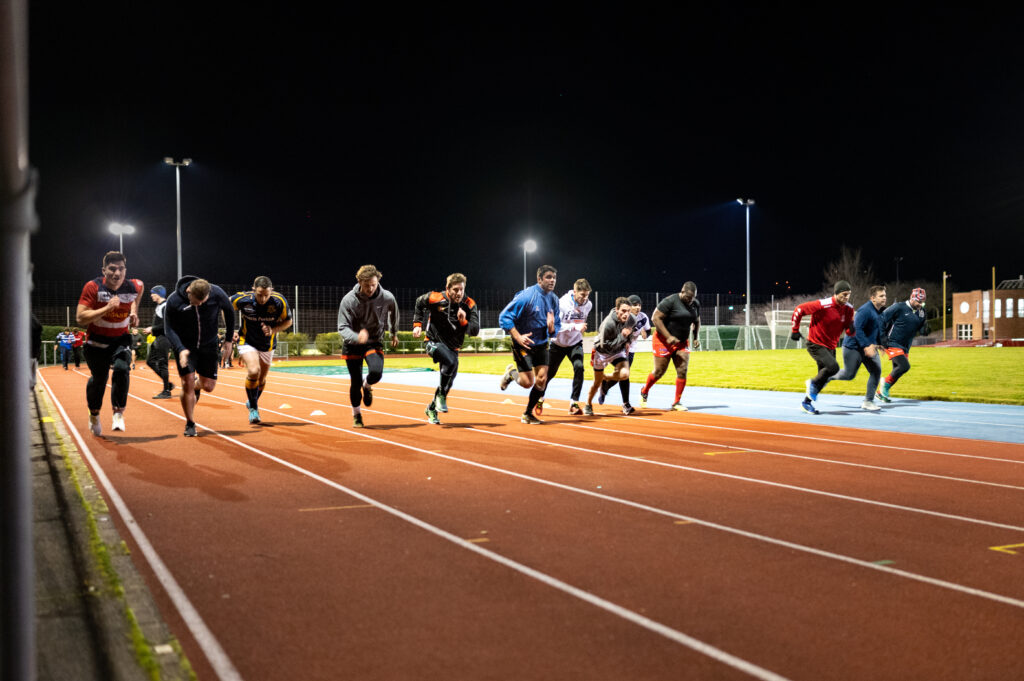
Physiological Assessment
Enhance your performance by uncovering your underlying physiological imitations.
Why Physiological Testing?
Research from the last 20 years has shown the vital importance that oxygen plays in performance, from sprinters to rugby athletes all the way to triathletes and CrossFitters.
Oxygen is the fuel that our muscles use to power muscular contractions and to maintain healthy cellular function.
The three big physiological systems that handle the uptake, delivery and utilisation of oxygen in our bodies are the respiratory, cardiovascular and metabolic (or muscular) systems, respectively (source).
What athletes can benefit from physiological testing?
Our testing protocols can be adapted for a wide range of athletes and sports.
A 5-1-5 assessment will be beneficial for cyclical/endurance/CrossFit athletes and help determine which one of the 3 major physiological systems is limiting performance the most. It will also provide you with individualize training zones to optimize your training.
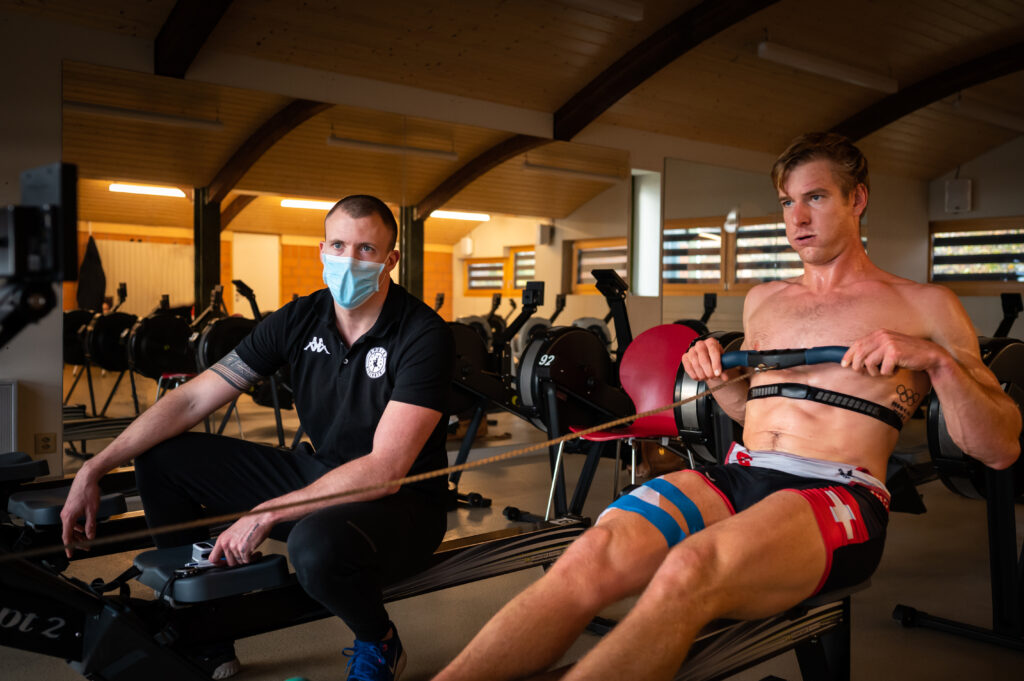
A RIP test or a Repeat Sprint Assessment can be a valuable protocol for intermittent sport athletes such as rugby, hockey or soccer players. This test helps you determine how well you recover from short, high intensity efforts and how you can improve the output, recovery and repeatability of your efforts for your sport.
Those tests can also help determine any left/right imbalances and potentially prevent some overuse injuries through appropriate programming recommendations.
Other testing protocols can be developed depending on the specific needs of your sport.
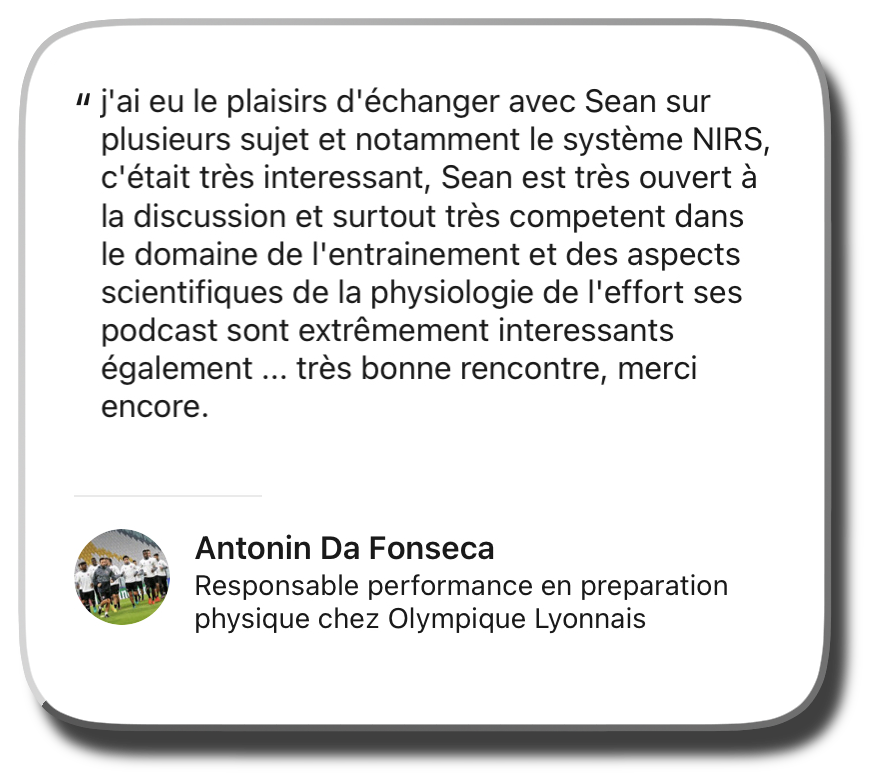
How does physiological testing work?
Using state of the art technology (Moxy Monitor) we help you (and your coach) find out what system(s) currently limits your sports performance and how to orient your training in order to overcome those limitations.
Our testing reports help you precisely determine training zones based on your physiology rather than on an estimated value, so that you can be sure that your training is driving the adaptations you are seeking.
We advise you (and your coach if you work with one) on what kind of training sessions you should focus on to improve your true physiological limitations and how to gauge your progress along the way (sample training sessions and progressions).

If you need a complete training program, this can be purchased as an add-on service to the testing itself.
As you improve a limiting system a new limitation will appear. This is why testing regularly is important for committed athletes. That way you can have an ongoing look « under the hood » to see what is truly going on and adjust your training over time to always be working effectively.
With the help of physiological testing you can be sure that your training remains productive, no matter what your goals are. Stop guessing and start taking a truly individualized and targettes approach to improve your sports performance.

What is included in a physiological test?
A complet physiological assessment includes the following:
– Spirometry to determine lung capacity and structural respiratory limitations
– The MOXY Assessment protocol that best fits your needs
– A full testing report including what your biggest limiting system is and how to train it (adaptation foaled and sample sessions provided)
– *a sport-specific respiratory assessment can also be completed for an additional fee
How much does physiological testing cost?
One assessment session for one person lasts from 90 to 120 minutes and is priced at 350.-
Subsequent tests can be purchased at a reduced price of 250.- each.
Respiratory testing (using the IDIAG P100) can be added for an additional 100.-
Interested in learning more about how physiological testing can help you or your athlete(s)? Book a free consultation today:
Vertical/Horizontal Jump Testing
This test includes a vertical jump assessment (CMJ), a horizontal jump test, as well as a vertical force/velocity profile made up of 4 weight steps to determine your force-power-speed capabilities in jumping.
This test is ideal and recommended if you perform the following sports: Soccer, rugby (certain positions), basketball, handball, volleyball, or any other sport that requires vertical jumping.
Test duration: 60-90 minutes
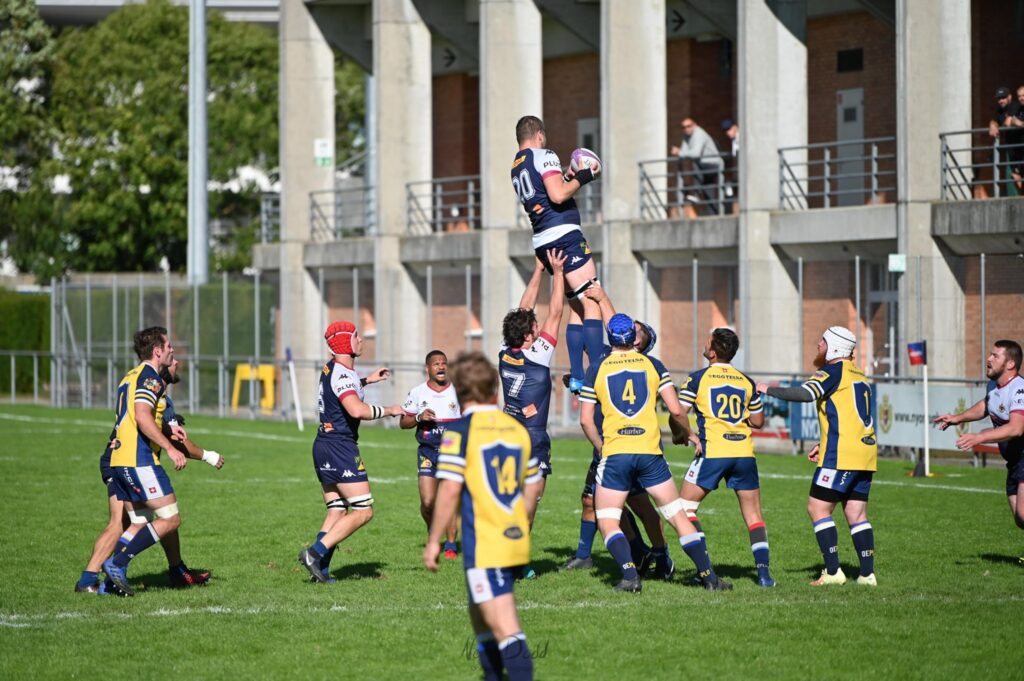
Speed Testing
This test is done through a 30m sprint on a track with a stopped start. Speed is measured in 5-meter segments from start to finish to give you a full force/velocity profile including max velocity (m/s), max force produced at the start and max power (watts).
You will also receive a complete sprinting technique assessment via a kinogram that you can then use to track your progress over time.
This test is ideal and recommended if you evolve in one of the following sports: Soccer, rugby, basketball, handball, track, or any other sport that requires sprinting.
Test duration: 60-90 minutes

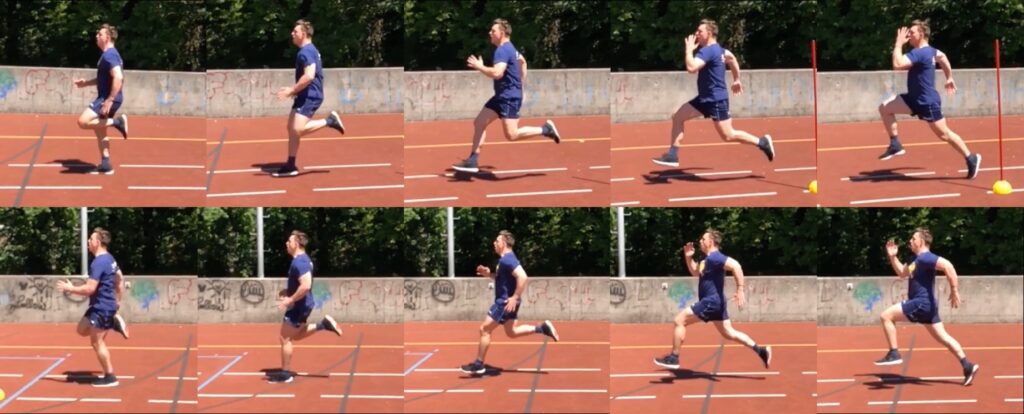
Frequently Asked Questions (FAQ)
Why undergo performance testing?
Performance testing can help you Identify weaknesses and strengths and serve as a progress monitoring tool. It will also guide the creation of your training program to make it more specific to your needs at that point in time.
By using performance testing, you will set yourself up for improved sport performance through a more comprehensive and professional approach.
What is a force/velocity profile?
A force/velocity profile allows us to determine whether an athlete is force or velocity biased. This has implications in both sprinting and jumping and will help individualized the athlete’s training program.
For example, if an athlete is force-biased on a vertical jump, he will likely benefit more from bodyweight or even unloaded jumping protocols than from heavy strength training or heavy ballistic movements such as Olympic weightlifting.
What is a Moxy monitor?
A Moxy monitor is a device that allows us to track oxygen saturation in the muscle (via SmO2) as well as blood flow trends (via tHB) in real time.
When it is utilized in conjunction with the testing protocoles described above, the Moxy gives us insights into the energetic processes that are going on in the muscle (e.g. how fast you utilise oxygen during efforts, how much tension you are creating in the muscle relative to blood flow, etc…) in real time.
This helps us determine your primary performance limiter and build specific training protocols that will address those physiological limitations.